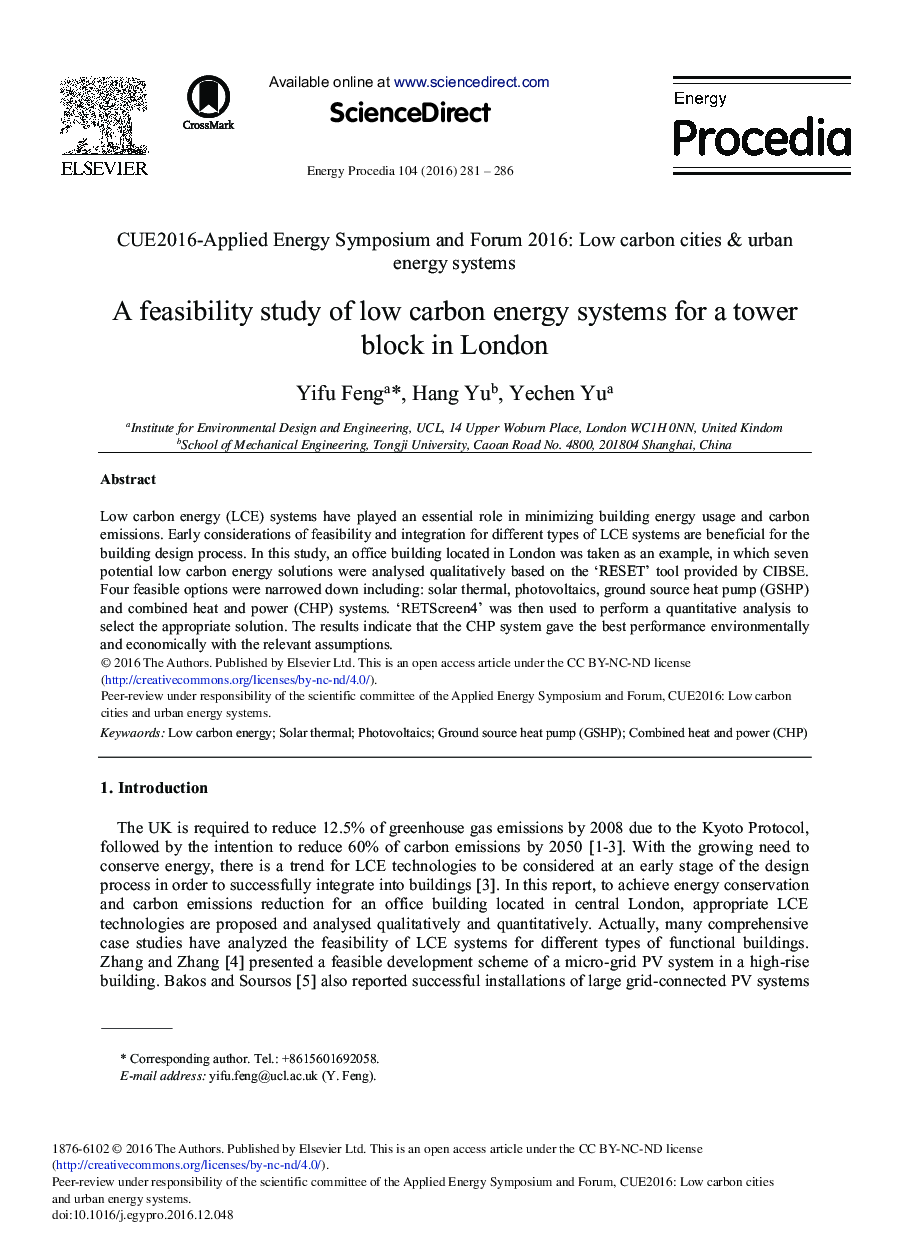| Article ID | Journal | Published Year | Pages | File Type |
|---|---|---|---|---|
| 5446375 | Energy Procedia | 2016 | 6 Pages |
Abstract
Low carbon energy (LCE) systems have played an essential role in minimizing building energy usage and carbon emissions. Early considerations of feasibility and integration for different types of LCE systems are beneficial for the building design process. In this study, an office building located in London was taken as an example, in which seven potential low carbon energy solutions were analysed qualitatively based on the 'RESET' tool provided by CIBSE. Four feasible options were narrowed down including: solar thermal, photovoltaics, ground source heat pump (GSHP) and combined heat and power (CHP) systems. 'RETScreen4' was then used to perform a quantitative analysis to select the appropriate solution. The results indicate that the CHP system gave the best performance environmentally and economically with the relevant assumptions.
Keywords
Related Topics
Physical Sciences and Engineering
Energy
Energy (General)
Authors
Yifu Feng, Hang Yu, Yechen Yu,
